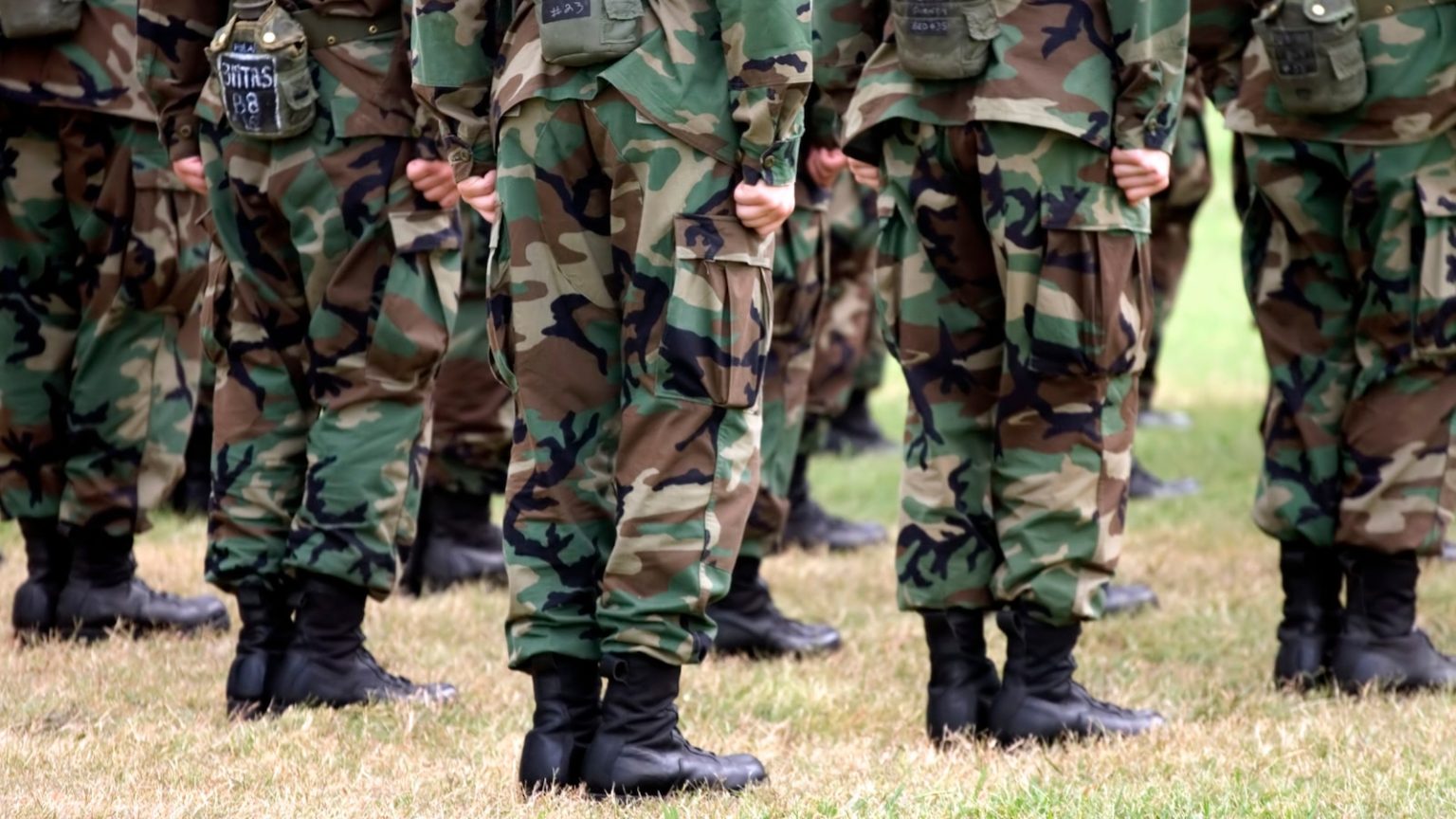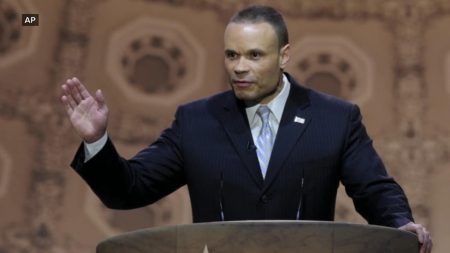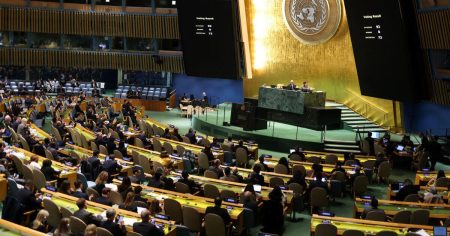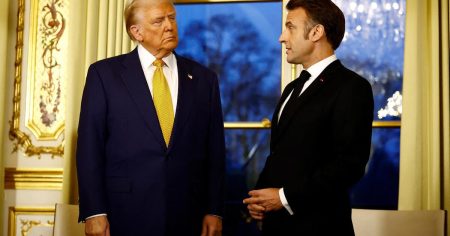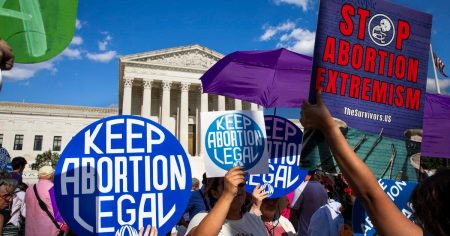A Federal Judge Signals Skepticism Toward Trump’s Transgender Military Ban
Background and Legal Battle
A federal judge appears poised to block the Trump administration if it attempts to impose restrictions or ban transgender individuals from serving in the military. U.S. District Judge Ana Reyes is currently presiding over a case challenging the executive order signed by former President Donald Trump on January 27, which directed the Department of Defense (DOD) to update its medical standards for transgender service members. The order effectively paused gender-affirming care for service members and is expected to significantly curtail the ability of transgender individuals to serve in the military. Judge Reyes has expressed deep skepticism about the administration’s arguments, suggesting that the policy is not only legally flawed but also rooted in outdated and scientifically incorrect assumptions about gender.
During a recent hearing, Judge Reyes questioned a Department of Justice (DOJ) attorney, Jason Lynch, about the claim that transgender service members undermine military readiness and lethality. She highlighted the absurdity of the argument, noting that less than 1% of the military identifying as transgender would have no meaningful impact on the overall effectiveness of the armed forces. When Lynch refused to agree with her assessment, Reyes made it clear that she had already formed a strong opinion about the case, stating that "smarter people on the D.C. Circuit would have to tell me I’m wrong" for her to change her mind.
The Judge’s Skepticism and Legal Arguments
Judge Reyes wasted no time in challenging the underlying premise of the executive order, which assumes that only two genders exist and that transgender individuals are less capable of serving effectively. She criticized the order’s language as intentionally vague and designed to justify a ban on transgender service members. At one point, she directly asked Lynch, "If we had President Trump here right now, and I said to him, ‘Is this a transgender ban?’ What do you think he would say?" When Lynch declined to speculate, Reyes overridden his hesitation, asserting, "He would say, ‘Of course it is.’ Because he calls it a transgender ban, because all the language in it is indicative."
Reyes also highlighted the lack of scientific basis for the administration’s position, stating that the claim that only two genders exist is "not biologically correct." She emphasized that the policy unfairly targets transgender service members and undermines their contributions to the military. During the hearing, she praised the plaintiffs—a group of transgender soldiers who filed the lawsuit—for their bravery and dedication, noting that their cumulative service exceeds 60 years. She pressed Lynch to acknowledge the value of their service, asking, "Are they honorable, truthful, and disciplined?" Lynch reluctantly agreed, admitting that the plaintiffs had indeed made America safer through their service.
The Impact on Transgender Service Members
The executive order has already had a chilling effect on transgender service members, leading to a pause in gender-affirming care and creating uncertainty about their future in the military. Judge Reyes expressed concern about the harm this policy could inflict on transgender individuals who have served honorably. She noted that the policy’s focus on gender identity rather than military performance is both discriminatory and counterproductive. During the hearing, she posed a rhetorical question to Lynch: "If you were in a foxhole, you wouldn’t care about these individuals’ gender ideology, right? You would just be happy that someone with that experience and that bravery and that honorable service to the country was sitting right next to you." Lynch acknowledged that, in such a situation, gender identity would not be a primary concern.
Reyes’ line of questioning underscored the central argument of the plaintiffs: that transgender service members are equally capable of performing their duties and contributing to the military’s success. She also pointed out that the policy’s ban on gender-affirming care is particularly damaging, as it denies service members access to medically necessary treatments. By framing the issue in terms of both legal and moral justice, Reyes signaled that she is unlikely to uphold the administration’s policy in its current form.
The Broader Implications of the Case
The case before Judge Reyes has significant implications for the rights of transgender individuals in the military and beyond. If Reyes issues an injunction blocking the executive order, it would represent a major setback for the Trump administration’s efforts to restrict transgender service. However, the legal battle is far from over. The DOD is expected to finalize its guidance on transgender service members in the coming weeks, and the case may eventually reach the D.C. Circuit Court of Appeals or even the Supreme Court.
Judge Reyes’ comments during the hearing suggest that she is deeply troubled by the administration’s approach to the issue. She repeatedly emphasized the bravery and dedication of transgender service members, noting that their gender identity has no bearing on their ability to serve. Her questioning also revealed a broader concern about the use of executive power to advance discriminatory policies under the guise of military readiness. By challenging the administration’s arguments and highlighting the human cost of the policy, Reyes is ensuring that the case is not only about legal technicalities but also about the fundamental dignity and rights of transgender individuals.
Conclusion
Judge Ana Reyes’ skepticism toward the Trump administration’s transgender military ban reflects a growing recognition that such policies are both unjust and unsupported by evidence. As the case progresses, her decision will have far-reaching consequences for transgender service members and the broader LGBTQ+ community. By emphasizing the bravery and contributions of transgender soldiers, Reyes is sending a powerful message about the importance of equality and inclusion in the U.S. military. Whether or not she ultimately blocks the policy, her willingness to challenge the administration’s arguments has already brought much-needed attention to the issue, ensuring that the voices of transgender service members are heard and respected.





